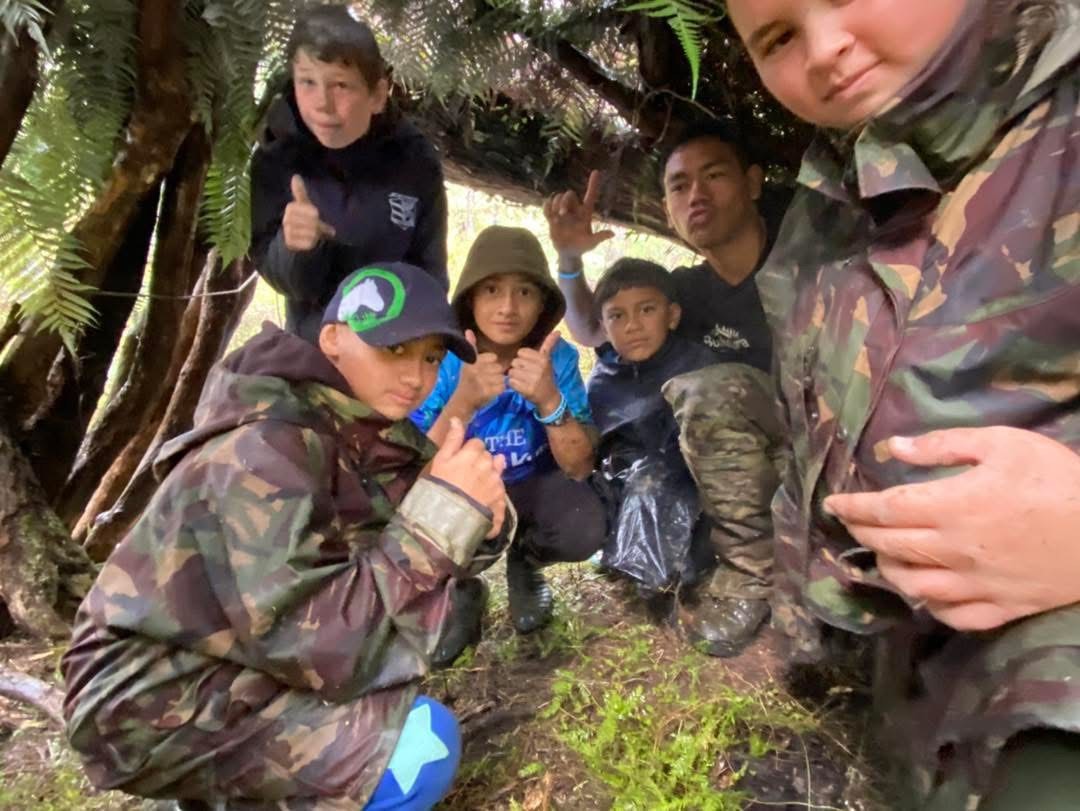Rangatahi as young as eight years old have been using the ngahere (bush) as their classroom to learn practical bush and survival skills through camps hosted by The Bush Kura.
Trust Tairāwhiti supported The Bush Kura with $57,849 in funding towards their annual rangatahi camps.
Keelan Poi, kaiwhakahaere (Chief Executive Officer) of The Bush Kura, describes the camps as an army-structured kaupapa delivered in a coasty way, aimed at building tamariki from rangatahi to rangatira (leaders), giving them the skills to thrive.
The Bush Kura was born out of Keelan’s passion for the taiao, background in the army and years of experience delivering outdoor education initiatives.
“Much of those initiatives involved working from the classroom and only doing a small part in the bush. I wanted to dedicate more time to hands-on teaching directly in the bush, so in 2019, we founded Te Kura a Wao Charitable Trust to create the Bush Kura,” says Keelan.
Camps begin with the Pūkeko offering, a basic-level three-day experience in which rangatahi are immersed in the ngahere and surrounded by positive role models.
“We try to engage with rangatahi in a fun and interactive way through games and bush activities, bringing them out of their comfort zone away from home and their devices.”
They can then progress to the intermediate-level Tuatara camp based in Ruatōrea. Tuatara camps are split into two stages. The first focuses on life skills, team building, basic bushcraft and shelters, knot-tying, fire safety and resilience building. The second builds on this, introducing an overnight hīkoi and more advanced skills.
Lessons across both camps are paired with pūrākau (stories of the past) to help rangatahi understand the whakapapa behind each practice.
“We try to build those foundational skills to ensure they can confidently navigate the ngahere,” says Keelan.
The third camp offering for tauira (students) who’ve completed the Tuatara camps is the Taniwha camp, also based in Ruatōrea. It’s an intensive, five-day hīkoi offered to just eight rangatahi annually, designed to put all learnings from previous camps into practice. The camp focuses on self-reliance, resilience and leadership in the deep bush.
“We’ve found that the kids ask ‘what’s next’ after the Taniwha camps.”
In response, Keelan and the Bush Kura team have welcomed many rangatahi back as kaimahi.
“Ex-tauira come back to shadow instructors, learning how to facilitate kaupapa and wānanga. They develop these skills behind the scenes from instructors whose backgrounds range from ex-military and police officers to some of the most prominent movers and shakers from our coast communities,” says Keelan.
The broader impact has been significant. From rangatahi returning as leaders to whānau engagement and other iwi expressing their interest in running camps in their rohe.
“Parents have asked how they can get involved to reinforce what’s being taught at these camps at home. We knew rangatahi needed support, but involving the whole whānau brings everyone on board.
“It’s not just an us thing, it’s on a whānau, hapu and hāpori level.”
The Bush Kura kaupapa is spreading beyond Tairāwhiti, with Keelan now being approached to run similar programmes in different regions, including an upcoming programme in Hokianga. While the focus remains on the Coast, the Bush Kura model is adaptable for rural communities nationwide.
Link

